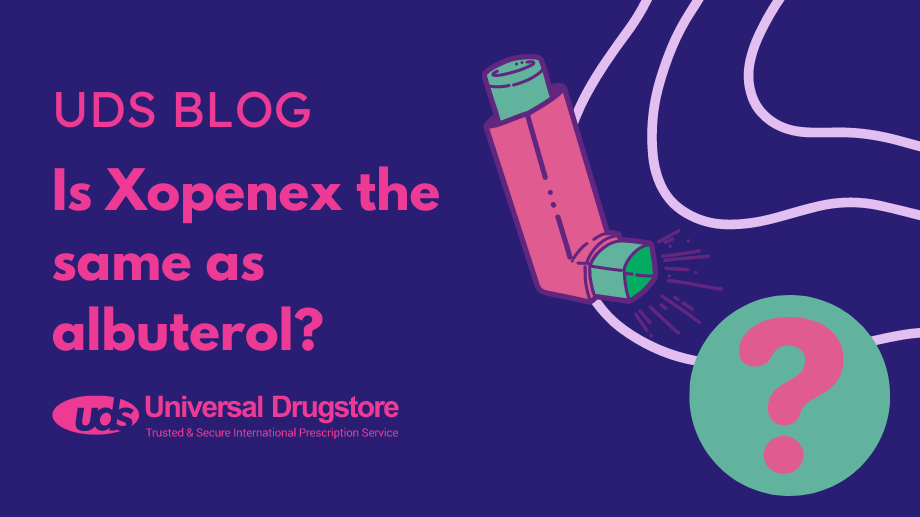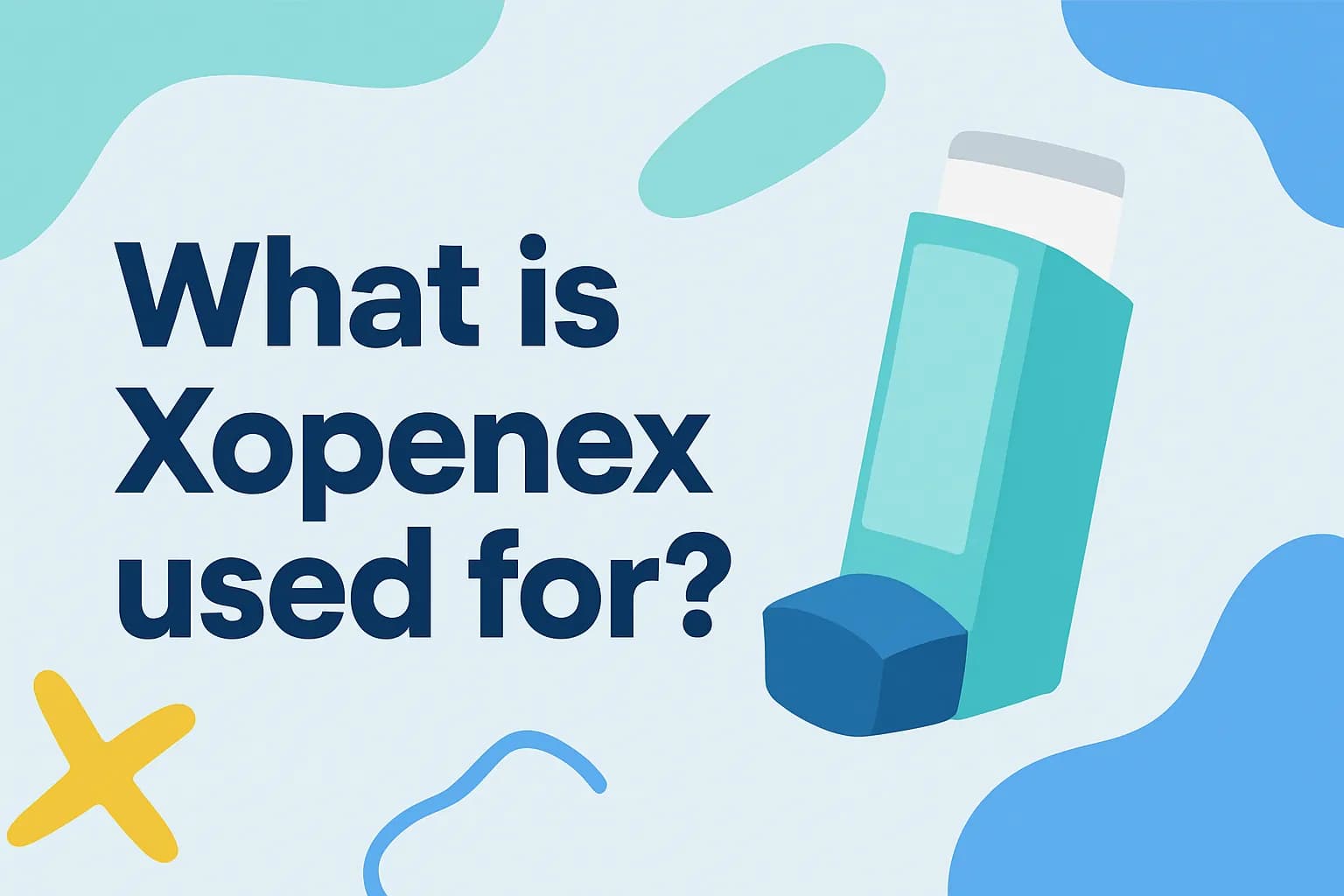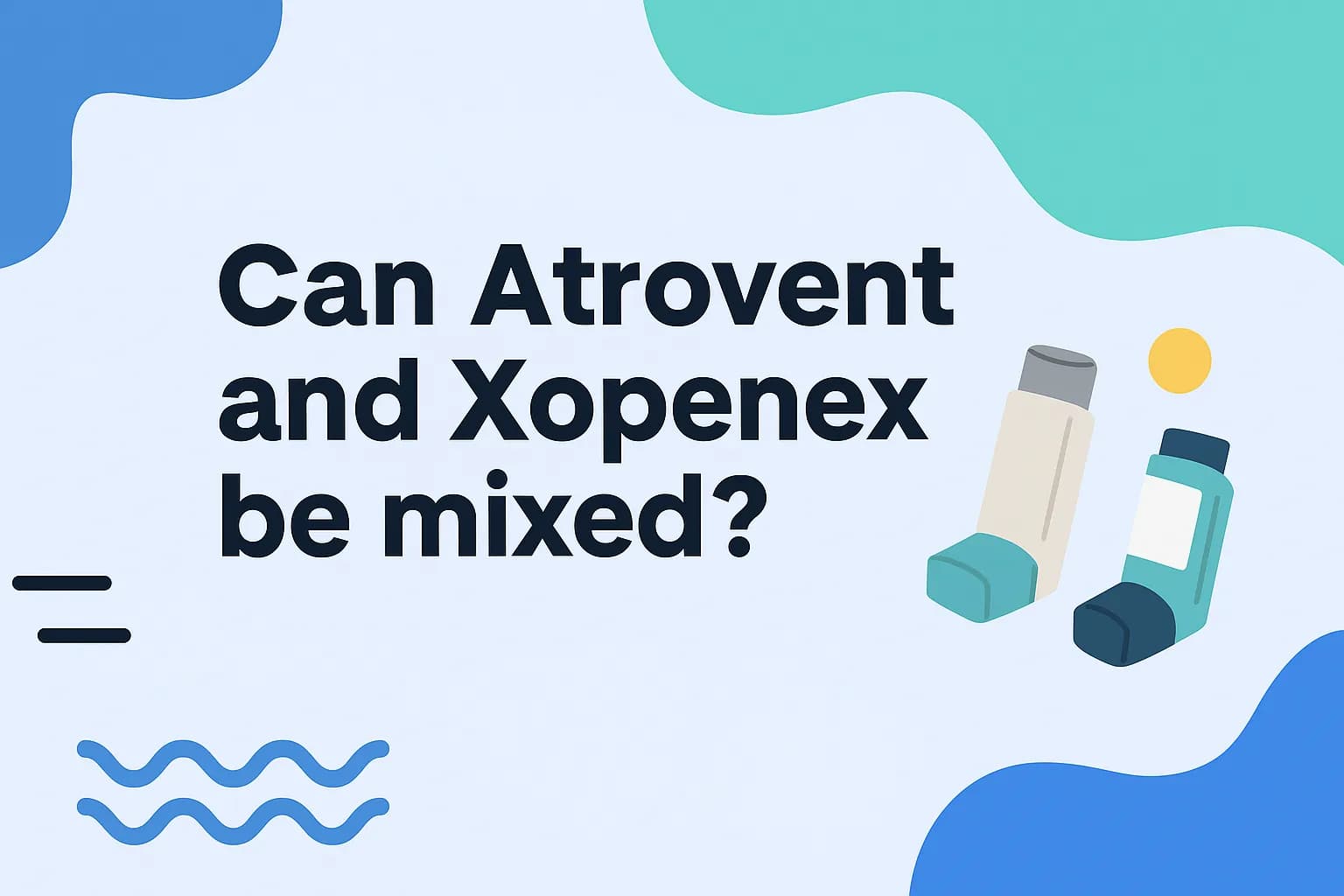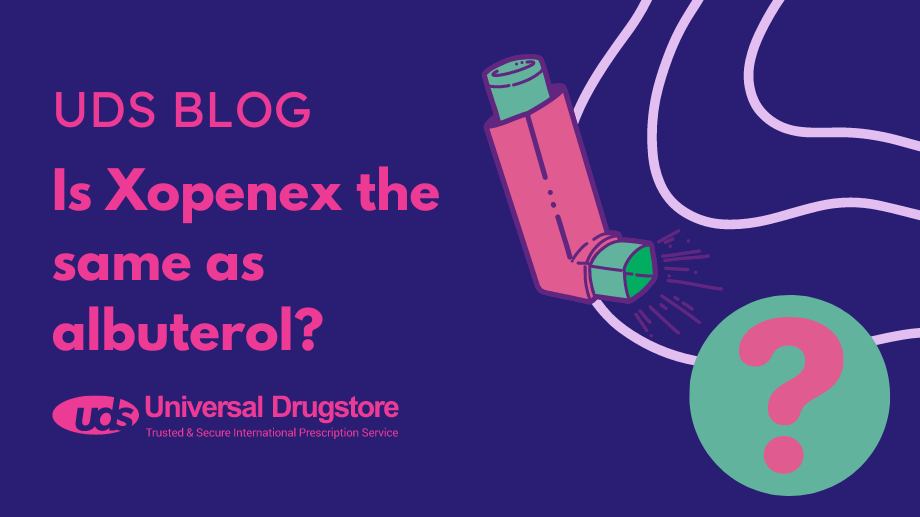Is Xopenex the same as albuterol?

Xopenex (levalbuterol) and albuterol (Proventil, Ventolin, ProAir) are both short-acting beta-2 agonists (SABAs) or bronchodilators used to treat bronchospasm in conditions such as asthma and chronic obstructive pulmonary disease (COPD). Bronchodilators work by relaxing the smooth muscles in your airways, which helps to open up your air passages so you can breathe easier. Xopenex and albuterol are often prescribed to improve airflow in your lungs and relieve severe asthma symptoms such as wheezing, shortness of breath, chest tightness, and coughing.
While they work on the same receptors in the lungs and are used to treat the same conditions, Xopenex and albuterol are not the same medication, and there are some differences between them.
The main active ingredient in Xopenex is levalbuterol, which is a single isomer (specific form) of racemic albuterol. On the other hand, albuterol is a racemic mixture containing both the R- and S-isomers (enantiomer) of albuterol. The R-isomer is believed to be responsible for the bronchodilator effects, while the S-isomer may contribute to side effects. However, studies have not shown that Xopenex is more effective, causes fewer side effects, or is better tolerated than albuterol.
Keep reading as we will go into more detail about each medication and answer some frequently asked questions.
Xopenex and albuterol FAQs
What is Xopenex?
Xopenex is the brand name for a medication that contains the active ingredient levalbuterol. Levalbuterol is a bronchodilator and is approved by the Food and Drug Administration (FDA) to treat and prevent bronchospasm in reversible obstructive airway disease, which includes asthma, certain breathing problems related to allergies, and COPD. COPD includes conditions such as chronic emphysema and bronchitis.
Xopenex is available as a nebulizer solution. It also comes as an aerosol inhaled via a metered-dose inhaler (MDI) under the brand name Xopenex HFA. Each actuation from the inhaler gives 59 mcg of Xopenex HFA, which equals 45 mcg of levalbuterol.
Xopenex HFA can be used in adults and pediatric patients 4 years of age and older, while Xopenex Inhalation Solution is only approved for adults and pediatric patients 6 years of age and older.
What are the side effects of Xopenex?
The most common side effects of Xopenex seen in clinical trials include:
- Headache
- Viral infection
- Sore throat
- Runny nose
- Tremor
- Dizziness
Other possible side effects include:
- Nervousness
- Body pain
- Chest pain
- Cough
- Dry mouth
- Hoarseness
Rarely, serious side effects may occur such as:
- Life-threatening allergic reactions, including anaphylaxis
- Paradoxical bronchospasm and worsening asthma symptoms
- Heart problems such as increased blood pressure, heart rate, and irregular heartbeat
- Low potassium levels
These are not all possible side effects. Consult a healthcare provider for concerns. Report issues to the FDA at 1-800-FDA-1088 or www.fda.gov/medwatch.
Who should not use Xopenex?
Do not take this medication if you have an allergy to albuterol, levalbuterol, or any inactive ingredients. Tell your healthcare provider if you have:
- Heart disease or heart rhythm issues
- Diabetes
- Seizures
- Overactive thyroid
- Kidney disease
- Pregnancy or are breastfeeding
What drug interactions are there with Xopenex?
Tell your provider about all medications, including:
- Other asthma medications (short or long-acting)
- Diuretics
- Beta-blockers
- Digoxin
- MAOIs or tricyclic antidepressants
Shop Medications
What is albuterol?
Albuterol (salbutamol) is a short-acting beta-agonist (SABA), often first-line for quick asthma relief. It treats bronchospasm in COPD and asthma, and can also prevent exercise-induced bronchospasm.
Albuterol relaxes airway muscles by acting on beta-adrenergic receptors. It helps relieve wheezing, coughing, and breathing difficulty. It is available in various forms including a metered-dose inhaler (90 mcg/actuation), syrup, tablets, and inhalation solution.
What are the side effects of albuterol?
Common side effects include:
- Fast heart rate
- Headache
- Pain
- Dizziness
- Sore throat
- Runny nose
- Nervousness
Serious side effects may include:
- Fast or irregular heartbeat
- Chest pain
- Low potassium levels
- Worsening respiratory symptoms (paradoxical bronchospasm)
- Allergic reactions including anaphylaxis
Always consult your doctor and read patient information. Report side effects to the FDA at 1-800-FDA-1088 or www.fda.gov/medwatch.
Who should not use albuterol?
Do not use if allergic to albuterol or levalbuterol. Inform your doctor if you have:
- Heart rhythm disorder
- Heart disease
- High blood pressure
- Seizures
- Heart failure
- Overactive thyroid
- Diabetes
- Pregnancy or are breastfeeding
- Low potassium levels
What drug interactions are there with albuterol?
Drug interactions may include:
- Other asthma medications including Xopenex
- Diuretics
- Beta-blockers
- Digoxin
- MAOIs or tricyclic antidepressants
Is Xopenex more effective than albuterol?
Studies comparing Xopenex and albuterol in asthma and COPD patients found similar outcomes in symptom relief. One study showed longer hospital stays and higher treatment costs with Xopenex. Another analysis of 7 trials found no significant differences in respiratory rate, oxygen saturation, or lung volume improvements. The conclusion was that there’s no evidence to favor Xopenex over albuterol.
Is Xopenex less likely to cause side effects compared to albuterol?
Both medications are similarly effective and have similar side effects. Although initially thought to cause fewer heart-related effects, studies are mixed and differences are not considered clinically significant. If you have heart rhythm issues, Xopenex might be preferable, but speak to your healthcare provider.
Can Xopenex be used as a rescue inhaler just like albuterol?
Yes, Xopenex can be used for sudden breathing issues just like albuterol. They work similarly and are effective in relieving acute asthma symptoms such as wheezing, shortness of breath, and chest tightness.
Related Medications
- ProAir HFA (albuterol)
- Proair RespiClick (albuterol)
- Ventolin HFA (albuterol)
- Albuterol CFC Free (albuterol)
- Duoneb (ipratropium/albuterol)
Sources
- Xopenex HFA Prescribing Information
- Xopenex Inhalation Solution Prescribing Information
- Medscape
- Prescriber’s Digital Reference
- DailyMed
- Brunetti L, Poiani G, Dhanaliwala F, Poppiti K, Kang H, Suh D C. Clinical outcomes and treatment cost comparison of levalbuterol versus albuterol in hospitalized adults with chronic obstructive pulmonary disease or asthma. Am J Health-Syst Pharm. 2015;72:1026-35. doi:2146/ajhp140551




